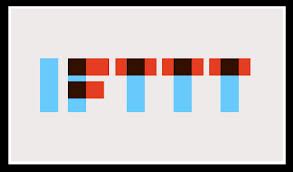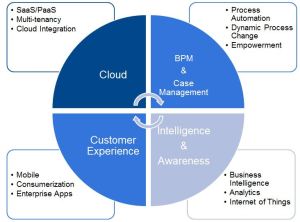IFTTT (If This Then That) is a service that lets users connect multiple different mobile apps based on a simple rule. “This” is the process trigger, “That” is the process action. Today the tool lets users rapidly create connections between 71 applications or what IFTTT calls “channels”. The simple workflows created between channels using the IFTTT rule are called recipes and can be shared within an IFTTT community.
So what’s the big deal?
In the BPMS suite we’ve been executing simple and complex business rules like If This Then That for years. The emergence of IFTTT is important because it does two things that BPMS does not do well; integration and simplicity.
Many business processes cut horizontally across organizations and as a result touch multiple business applications. There is thus an ongoing drive among BPM and Case Management vendors to continuously enhance their integration capabilities. This is however a continuously moving target and integration remains one of the greatest obstacles for the successful deployment of both cloud and on premise BPM solutions, often adding considerable cost and time to projects.
When it comes to the integration of cloud and mobile applications into business processes the difficulty multiplies. We are only just seeing the emergence of smart process applications and on demand business processes. Mobile BPM applications have emerged with integration to back end systems but is any BPM vendor doing mobile app to mobile app integration?
Mobile and cloud app integration is a key IT battleground. As business software users we regularly use mobile apps and on demand software to address business problems. This consumerization of the business IT landscape however sits uncomfortably with IT heavy BPM projects.
IFTTT radically simplifies the process of stitching together and automating web services and as such throws down the gauntlet to other business applications that are heavily reliant on application integration.
Consistent with consumerization IFTTT empowers users to integrate and develop their own workflows. It doesn’t take a huge leap of faith to expect this simple IFTTT rule to be extended to support more complex rules and events and ultimately encroach into the market for workflow and BPM applications.



